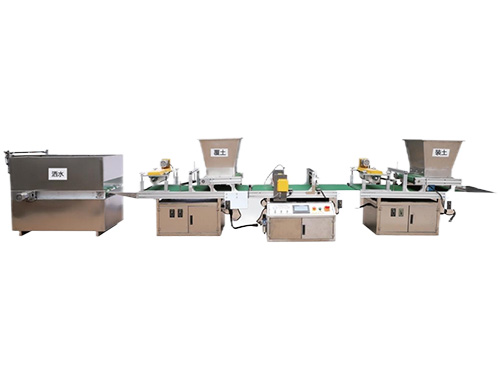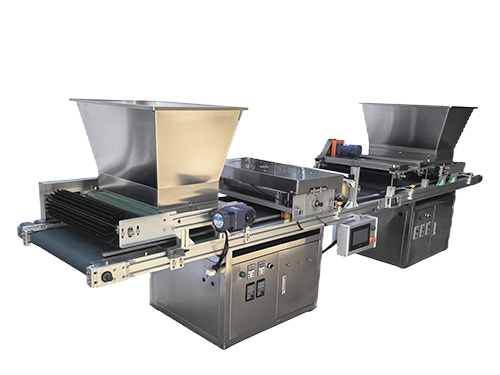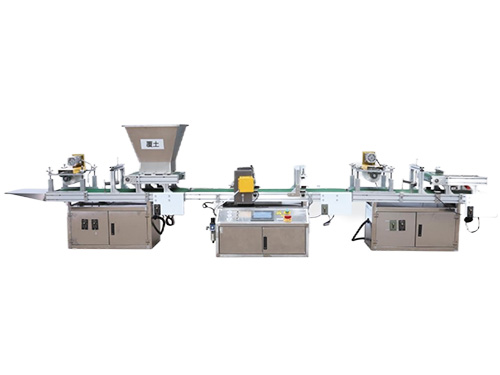Knowledge related to seedling trays
2023-11-06 13:53:32
Understanding the characteristics, usage, and maintenance of seedling trays is essential for growers seeking high-quality yields. This article explores the key features, practical usage tips, and maintenance practices for seedling trays to help optimize plant growth while reducing costs and effort.
I. Key Characteristics of Seedling Trays
1. Labor-Saving and Cost-Effective Solution
Seedling trays streamline the planting process by reducing labor needs and planting costs. These trays are ideal for cultivating strong rice seedlings, enhancing productivity and efficiency for both small-and large-scale operations.
2. Eco-Friendly and Non-Toxic
Made from polypropylene ethylene (PP) or polyethylene (PE), seedling trays are safe for seedlings and do not cause soil contamination. Their moisturizing properties also help retain water, ensuring ideal conditions for robust seedling development.
3. Durable and Long-Lasting
High-quality seedling trays offer a long service life. White-colored trays can last over 7 years, while trays in other colors typically last 5 years or more, making them a sustainable investment for long-term agricultural use.
II. Usage Guidelines for Seedling Trays
1. Seed Quantity and Tray Allocation
Use 16 to 25 seedling trays per acre.
Each tray holds 1.5–3.0 taels of seeds, making it easy to calculate per-acre planting needs.
2. Preparing the Seedbed
Level the seedbed thoroughly and water the bottom adequately.
Place a soft disk or flat-bottom pad under the tray to ensure stability.
Use 7:3 ratios of nutrient soil to organic fertilizer to enhance growth. One bag of seedling-strengthening agent (2.5 or 1.5 kg) can support 90–120 trays or a flatbed soil area of 20 square meters.
3. Managing Temperature and Ventilation
Maintain proper ventilation to control seedling moisture levels and prevent heat buildup.
Monitor environmental conditions to avoid climate-related losses and ensure steady, healthy seedling growth.
4. Ensuring Even Distribution
Achieve loose bed soil and ensure the bed surface is level.
Mix the soil and fertilizer uniformly to provide consistent nourishment to all seedlings.
III. Maintenance and Storage Tips
1. Immediate Cleaning after Use
Clean seedling trays right after planting to prevent residue buildup.
2. Organized Storage
Stack the trays into bundles of ten and align them neatly to avoid damage.
Store trays in cool, ventilated spaces—exposure to sunlight and rain must be avoided to maintain tray integrity.
3. Indoor Storage Only
Never store seedling trays outdoors. Direct exposure to harsh weather can weaken the material, reducing the tray’s lifespan and effectiveness.
IV. Maximize Growth with Proper Seedling Tray Use
Seedling trays are a valuable tool for modern agriculture. Their cost-efficiency, eco-friendliness, and ease of use make them ideal for professional growers and gardening enthusiasts alike. Following the usage guidelines and proper maintenance practices outlined here will not only boost yields but also prolong the trays' service life, offering growers a sustainable and reliable planting solution.
By investing in high-quality trays and managing them effectively, farmers can enhance seedling growth, lower labor costs, and minimize environmental impact. Whether you're growing rice, vegetables, or flowers, these trays offer the perfect combination of efficiency and sustainability for optimized planting.

The CNC Seed Braiding Machine is a high-precision, fully automated agricultural equipment s...

It adopts electrical integration and can be started by pressing the fully automatic button ...

The XP750 seeder has stable performance, excellent product quality, simple and convenient o...

It adopts electrical integration and can be started by pressing the fully automatic button ...



